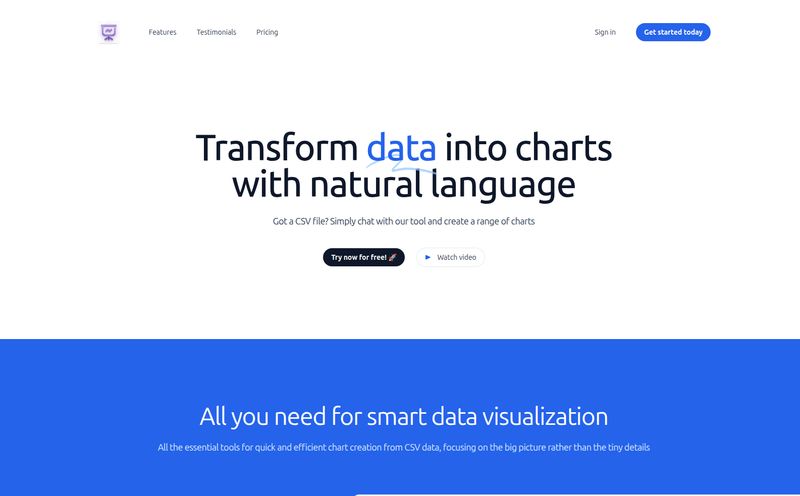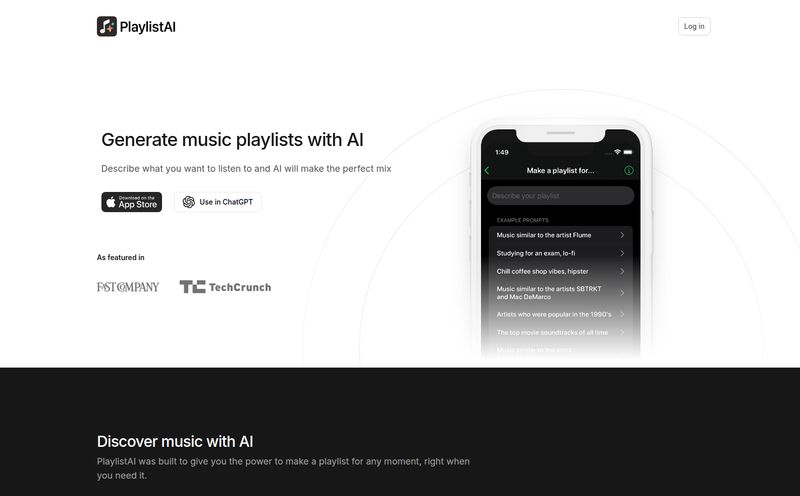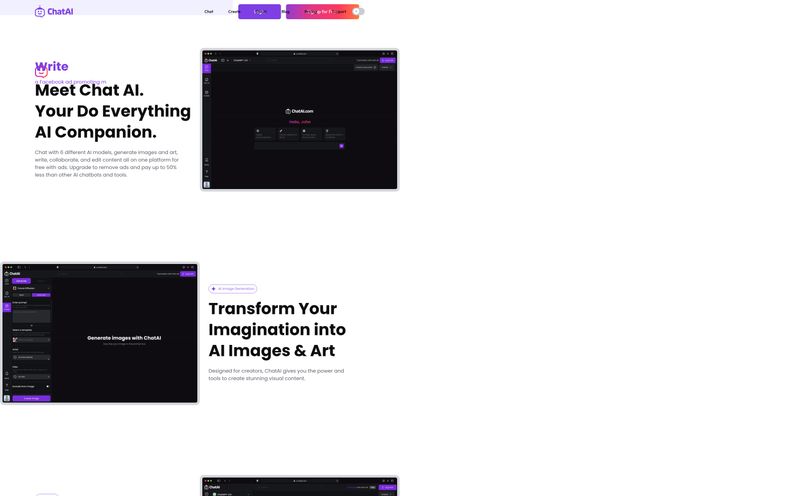Is This The Social Network We’ve Been Waiting For?
Let me tell you a story. As someone who lives and breathes SEO, I'm constantly on the lookout for the next big thing in digital interaction. So when I heard whispers of Philonet.ai, a platform promising to connect us through shared intellectual interests rather than cat videos and rage bait, my curiosity was definitely piqued. I eagerly typed in the URL, ready to see the future of online discourse. And I was greeted with… a Firebase error page. “Backend Not Found.”
Ah. Okay. Not the grand entrance I was expecting.
But honestly? It almost makes the story better. It adds a layer of mystery and a very human dose of reality to an otherwise lofty concept. Because while the platform itself might be a ghost in the machine for now, the idea behind Philonet.ai is something we need to talk about. It’s a direct response to the digital fatigue so many of us feel. You know the feeling. Mindlessly scrolling through a feed that’s been so aggressively “optimized” for your engagement that it feels like you're eating digital junk food. We’ve all been there.
So What is Philonet.ai Supposed to Be?
Putting aside its current state of… well, non-existence, Philonet.ai aims to be a social network built on a completely different foundation. Imagine you’re deep into a fascinating article on, say, the migratory patterns of the Arctic Tern. Instead of just reading it alone, Philonet.ai would show you who else is reading that exact same page, right now. It wants to turn the lonely act of internet browsing into a dynamic, shared experience.
It’s like turning the entire web into a massive, sprawling library where you can lean over and whisper to the person reading the same book as you. No more shouting into the void of Twitter or posting a link on Facebook, only to have it ignored. The platform is designed to create instant, context-rich conversations around the content itself. A pretty revolutionary idea, if you ask me.

Visit Philonet.ai
Breaking Down The Core Features
The vision for Philonet.ai isn't just a vague promise; it’s built on some pretty specific and interesting features. These are the tools meant to make this new kind of social interaction possible.
Real-Time Hot Rooms for Instant Connection
This is the heart of the platform. When you're on a webpage, you can open a 'Hot Room'. It’s a temporary, live chat space for everyone currently on that page. Think of it as a pop-up discussion forum that exists only for that piece of content. This fosters real-time debate and collaboration, directly tied to the source material. The potential for students, researchers, or even just hobbyists going down a Wikipedia rabbit hole is immense.
Collaborative Browsing and the Dynamic Interest Graph
This is where it gets really clever. Philonet.ai says it will build a 'Dynamic Interest Graph' for you, not based on what you vaguely “like” but on the actual content you consume. It then connects you with others who have similar, nuanced interests. This fuels collaborative browsing, where you can discover new articles, videos, and resources through the people you're interacting with. It’s a way to break out of the dreaded filter bubble that our current algorithm overlords have built for us.
Sparks and Highlights for Focused Dialogue
Ever tried to discuss a specific sentence in a long article on a traditional social platform? It's a mess. You paste the quote, add your comment, and the context is immediately lost. Philonet.ai plans to solve this with a 'Highlight-to-discuss' feature. You can select a specific piece of text to anchor your comment to. Furthermore, the 'Spark' feature lets you initiate a Hot Room with your own thoughts and invite specific friends, turning a personal insight into a shared exploration.
The Big Promise: Ditching the Algorithm Overlords
Let's be blunt. For years, I’ve been teaching people how to “beat” the algorithm for traffic generation, but a part of me has grown to resent its very existence. Social media has become a game of chasing trends, creating polarizing content for maximum “engagement,” and fighting for scraps of attention. It’s exhausting.
Philonet.ai’s biggest selling point is the elimination of these trend-chasing algorithms. Your feed, if you can call it that, wouldn't be determined by what’s going viral, but by what you and your intellectual peers are genuinely interested in. It’s a move from a broadcast model (me yelling at you) to a conversational one (us talking together).
"We've engineered an online world that rewards the loudest, most divisive voices. A system that prioritizes genuine connection over manufactured outrage isn't just a feature; it's a necessary course correction for our digital society." - I might have just made that quote up, but tell me it doesn't ring true.
The platform’s ecosystem is also described as decentralized, which is a big deal. It suggests that these context-rich dialogues could be preserved and searched, creating organic knowledge networks instead of conversations that vanish into the ether. It’s a return to the promise of the early internet, a web for minds, not just for eyeballs.
A Healthy Dose of Skepticism (Let's Be Real)
Okay, let me put my optimist hat down for a second. As exciting as all this sounds, we have to talk about the 'Backend Not Found' page. A brilliant idea is worth nothing without execution. The platform is listed as “Coming soon,” but in the fast-moving tech world, that can mean anything from “next month” to “never.” I've seen countless promising projects become vaporware.
Then there's the chicken-and-egg problem of any new social network. It's only valuable if people are on it. How do you get that critical mass? It requires users to actively change their browsing habits, to want to share and engage. Many people are, frankly, passive consumers. Philonet.ai might be too much work for them, which could relegate it to a super-niche community. Which, maybe, isn't a bad thing? Perhaps a smaller, more dedicated user base is better than a huge, disengaged one.
What About the Price?
Right now, there's no information on pricing. Zero. Zilch. This makes sense for a product that's still in development. One can only speculate. Will it be free, supported by some non-intrusive ad model? Or will it go the subscription route? Personally, I'm hoping for a modest subscription. A platform that rejects the ad-driven engagement model should, in my opinion, be supported by its users. It aligns the incentives. You pay for a good service, they provide a good service. No need to sell your data or manipulate your feed to please advertisers.
My Final Thoughts on Philonet.ai
Despite the error page, I’m genuinely excited. Philonet.ai feels less like just another app and more like a statement. It’s a pushback against a web that has become increasingly isolating despite its interconnectedness. It has the potential to be an invaluable tool for lifelong learners, academics, and anyone who misses the feeling of genuine discovery online.
Will it succeed? I have no idea. The hurdles are significant. But I’ll be keeping this one on my radar, refreshing the page every now and then. Here's hoping the backend gets found soon, because teh idea is one of the most refreshing I've seen in years.
Frequently Asked Questions about Philonet.ai
- What is Philonet.ai in simple terms?
- It's a social network designed to let you chat with other people who are looking at the same webpage as you, at the same time. The goal is to create conversations around shared interests and content, not algorithms.
- Is Philonet.ai actually available to use?
- As of late 2023 / early 2024, it does not appear to be publicly available. The website shows a 'Backend Not Found' error, and the project is described as 'Coming soon.' It's best to consider it in a pre-launch or development phase.
- How is Philonet.ai different from Reddit or Discord?
- While Reddit and Discord host communities around topics, Philonet.ai's conversations are tied directly to the specific content (like an article or video) you are consuming at that moment. The connection is more immediate and contextual, rather than in a separate forum or server.
- Is Philonet.ai free?
- There is no pricing information available yet. We don't know if it will be free, subscription-based, or have a freemium model.
- Who is the ideal user for Philonet.ai?
- Based on its concept, the ideal user would be someone who is intellectually curious—students, researchers, professionals, hobbyists, and anyone who enjoys deep discussions and is tired of traditional, algorithm-driven social media.
- What does 'decentralized' mean for Philonet.ai?
- While the specifics aren't fully clear, it generally implies that the data and conversations aren't stored on one central server controlled by the company. This can lead to greater user control, censorship resistance, and the creation of a more permanent, searchable knowledge base.
Conclusion
The path for Philonet.ai is uncertain, and its greatest challenge will be moving from a compelling concept to a functioning, populated platform. Yet, the sheer ambition of its goal—to re-center the internet on connection and context—is something worth rooting for. It's a reminder that the web can be more than it is. I, for one, will be waiting to see if they can finally deploy their app.
Reference and Sources
- For more on Firebase hosting errors, see the official App Hosting documentation.
- For context on algorithmic influence, Eli Pariser's concept of The Filter Bubble remains highly relevant.



